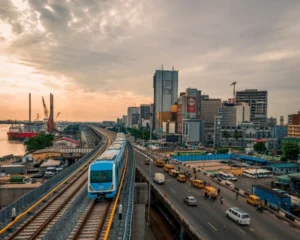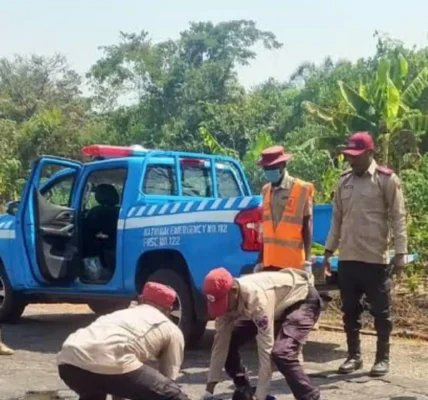The Federal Road Safety Corps (FRSC) has revealed that over 411 Nigerians lost their lives in 2024 while attempting to scoop fuel from fallen tankers across the country.
The shocking figure was disclosed by the Benue State Sector Commander, Steve Ayodele, during a town hall meeting with trailer and tanker drivers in Makurdi, aimed at addressing the growing menace of road crashes and fuel scooping.
According to Ayodele, these fatalities represent 7.6% of all road traffic deaths recorded nationwide in 2024. He described the incidents as “tragic but entirely avoidable,” warning the public to desist from such dangerous practices.
“Fuel scooping has become one of the deadliest practices on Nigerian roads. Instead of recognising spilt fuel as a danger, many rush to collect it. Sadly, this reckless act has cost hundreds of lives and destroyed property,” he said.
The FRSC boss explained that tanker explosions often result in severe burns, destruction of vehicles, shops, and infrastructure, leaving families in economic distress. He blamed the tragedies on reckless driving, disobedience to traffic laws, roadside trading near accident-prone areas, and unsafe behaviour at crash sites.
Ayodele further identified overloading, unregulated driving hours, and poor safety checks as major contributors to tanker-related accidents.
Also speaking, Babalola Sheba, Head of Operations at the Nigerian Midstream and Downstream Petroleum Regulatory Authority (NMDPRA), condemned the environmental and health hazards of fuel scooping. He explained that fuel spills contaminate soil, water, and air, while prolonged exposure to fumes can trigger respiratory problems and skin irritation. Eyes Of Lagos reports,
Sheba disclosed that new safety measures have been introduced, including compulsory anti-spill valves, speed limiters on tankers, and a colour-coding system to differentiate petroleum products.
In his remarks, Emmanuel Ogbanje, State Coordinator of the Computerised Vehicle Inspection Service (CVIS), emphasized the importance of regular vehicle checks, strict axle load compliance, and adherence to traffic laws.
“Safety is not a one-time goal but a continuous process,” Ogbanje stated, urging drivers to always carry valid licences, avoid overloading, and report unsafe practices.
He also called for stronger public awareness campaigns and stakeholder collaboration to curb the dangerous culture of fuel scooping and reduce tanker-related disasters across Nigeria.







